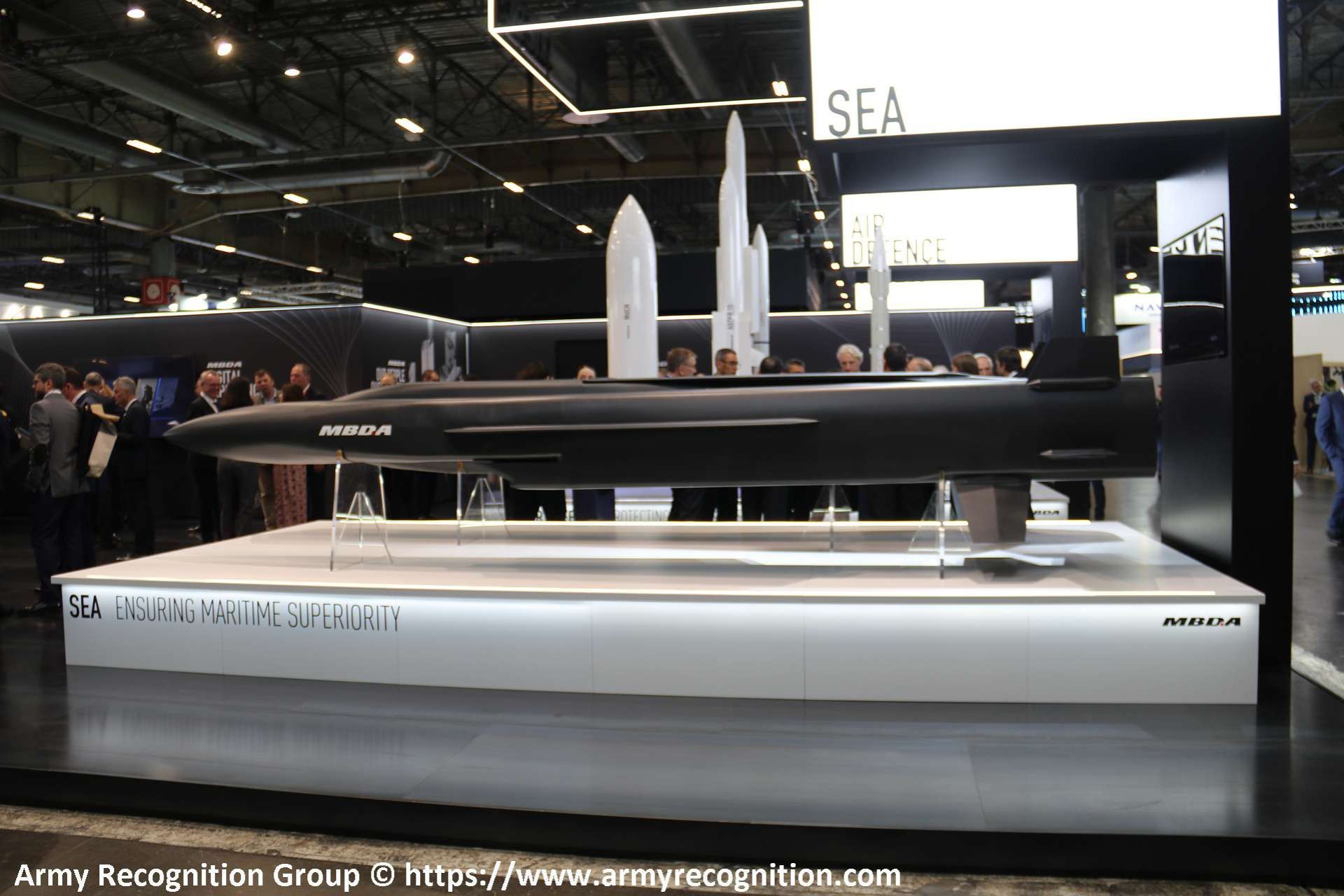Breaking News
Euronaval 2024: MBDA Strengthens European Deep-Strike Capability with FC/ASW Missile Program.
At the Euronaval 2024 exhibition, European missile manufacturer MBDA presented advancements in its Future Cruise/Anti-Ship Weapon (FC/ASW) program, a strategic project aimed at equipping Europe with sovereign deep-strike capability for the coming decades. The program has reached critical milestones in its assessment phase, validating several key missile technologies, with additional tests planned before year-end to prepare for the next development stage. The conflict in Ukraine has underscored the strategic value of deep-strike capabilities, as they allow for the targeting of key infrastructure and military assets beyond frontline areas.

The FC/ASW project, supported by the United Kingdom and France, aims to develop two complementary missiles: a low-observable subsonic missile and a highly maneuverable supersonic missile (Picture source: Army Recognition)
Over the past year, MBDA has achieved significant milestones in the program's assessment phase. The TP15 prototype underwent Radio Frequency (RF) signature trials to validate its stealth properties, while the RJ10 missile's propulsion system was rigorously tested in wind tunnels. According to Pierre-Marie Belleau, head of MBDA’s deep-strike product line, these tests mark critical progress, with both missiles “being developed in parallel to confront the most challenging targets in the next decade.” This approach emphasizes MBDA’s multinational strategy, combining the technological expertise of over 750 specialists across the UK and France.
In June 2023, Italy signed a letter of intent to join the FC/ASW project, formally expanding the partnership by early 2025. This tri-national collaboration represents a strategic convergence in European defense, with MBDA poised to leverage combined expertise and resources to meet Europe’s evolving security needs. Italy’s integration marks a key transition for the program, opening the way for tri-national development, manufacturing, and distribution phases, while also allowing for future participation from other European allies.
The FC/ASW missiles will be compatible with existing platforms, such as the Italian Navy’s FREMM frigates, the UK Royal Navy’s Type 26 frigates, Eurofighter Typhoons, and French Rafale jets. Additionally, these missiles could be adapted for next-generation European platforms, including those under the Global Combat Air Programme (GCAP), a collaboration involving the UK, Italy, and Japan, and the SCAF/FCAS program, jointly developed by France, Germany, and Spain.
This year’s achievements include radar signature testing on the TP15 subsonic missile prototype, supersonic wind tunnel testing on the RJ10 variant’s propulsion system, and advanced trials on missile seekers, warheads, and fuzing systems. Belleau noted that the TP15 prototype integrates a turbojet engine designed by Rolls Royce and Safran, highlighting MBDA’s commitment to advancing global missile technology. These recent assessments demonstrate the impressive technical strides made, positioning MBDA at the forefront of missile technology.
Despite ongoing UK acquisition reviews ahead of the 2025 Strategic Defense Review (SDR), MBDA remains optimistic about the program’s continuation, underscoring deep-strike as a critical defense priority. In July, the UK reaffirmed its partnership with MBDA through a new £6.5 billion ($8.4 billion) Portfolio Management Agreement to support “complex weapons” development, reinforcing the importance of deep-strike capabilities.
In addition to FC/ASW, MBDA introduced the new Exocet SM40 submarine-launched anti-ship missile at Euronaval. With a J-band RF seeker and a turbojet engine, the SM40 offers twice the range of previous Exocet models, underscoring MBDA’s ongoing commitment to innovation across various defense platforms.
The return of high-intensity conflict in Europe, notably with the Russian invasion of Ukraine, has highlighted the critical importance of air and missile defense systems to protect infrastructure and populations. Deep-strike capabilities have become essential for neutralizing adversarial threats before they reach the front lines, allowing armed forces to target command centers, logistics hubs, and strategic assets beyond immediate combat zones. In this context, MBDA’s FC/ASW program is positioned as a crucial element in bolstering European security, ensuring that European forces have access to advanced, sovereign deep-strike solutions in an increasingly contested global environment.


























